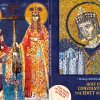On July 10th, 1856, a boy was born at midnight during a lightning storm in present-day Croatia. Twenty-eight years later, he would come to America with virtually nothing but his education and a mind unlike any other. He would change the world forever with alternating current – the form of electricity we use to this day. He would go toe-to-toe with Thomas Edison, one of the most powerful men on the planet, who did everything he could to get in his way. He would suffer from mental illness in a time before proper diagnosis and treatment were available. He would be admired by scores of women but would never marry or have children, as he feared they would distract him from his work. He would fail at just as many endeavors as he succeeded at. Because he took no royalties for his AC patents, ensuring that safe, cheap electricity would reach every corner of the globe, he would die broke, alone, and insane. After his death he would be largely forgotten as he left behind no companies or children.
His name was Nikola Tesla. This is his story – the man, the myth, the musical.
Interview: Tesla Musical in making: Teslians Aaron Guzzo and Miroslav Vejnovic about musical in making
Production Team: Aaron Guzzo, composer, musical director, and screenwriter, and Craig Hissong, lyricist







